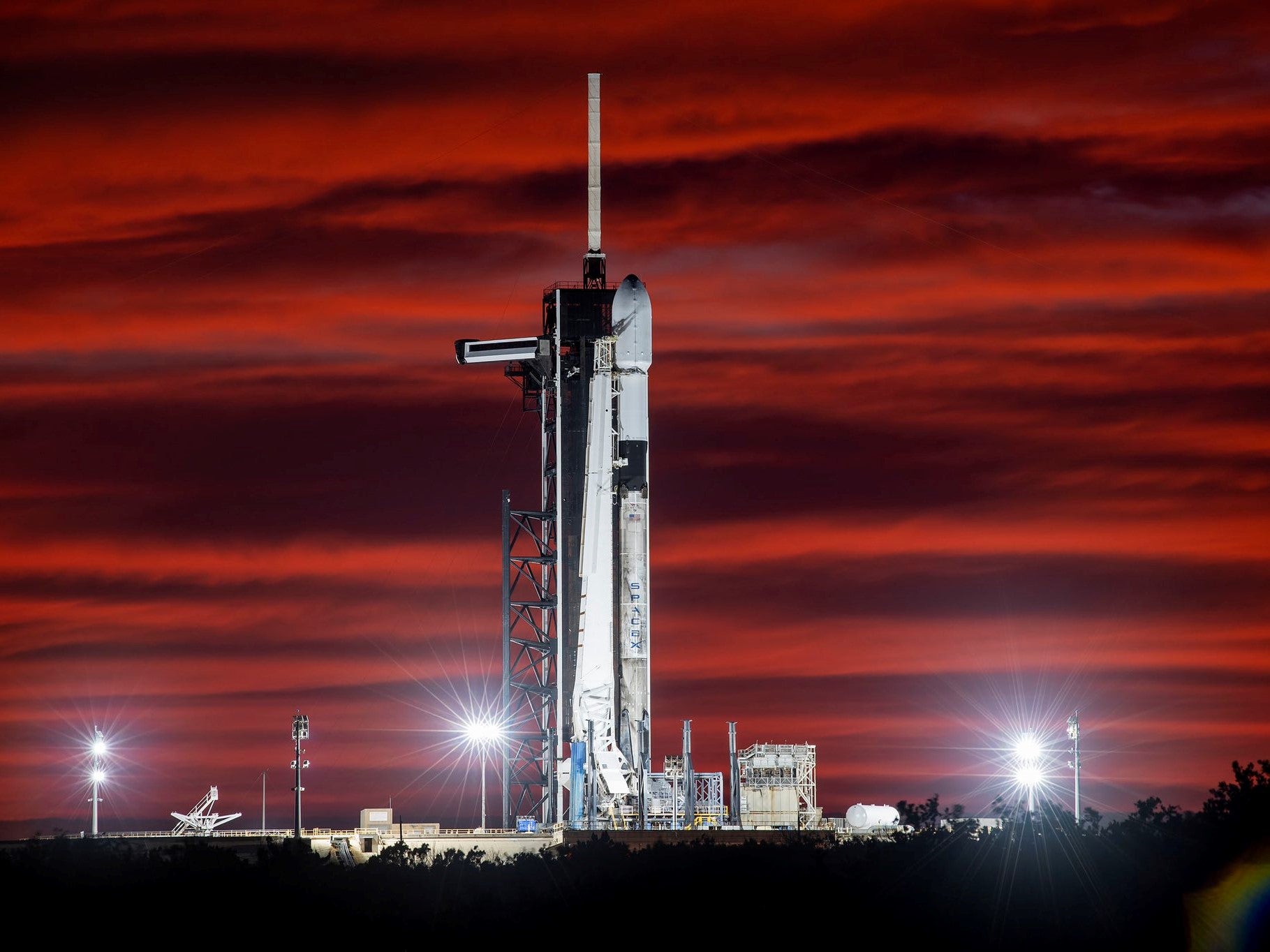SpaceX scrubs launch of Elon Musk's controversial Starlink mission once again
Space internet project has faced heavy criticism from the astronomy community

Your support helps us to tell the story
From reproductive rights to climate change to Big Tech, The Independent is on the ground when the story is developing. Whether it's investigating the financials of Elon Musk's pro-Trump PAC or producing our latest documentary, 'The A Word', which shines a light on the American women fighting for reproductive rights, we know how important it is to parse out the facts from the messaging.
At such a critical moment in US history, we need reporters on the ground. Your donation allows us to keep sending journalists to speak to both sides of the story.
The Independent is trusted by Americans across the entire political spectrum. And unlike many other quality news outlets, we choose not to lock Americans out of our reporting and analysis with paywalls. We believe quality journalism should be available to everyone, paid for by those who can afford it.
Your support makes all the difference.SpaceX has once again scrubbed the launch of its latest Starlink mission.
It was the fourth attempt to deliver a batch of 60 satellites into low-Earth orbit as part of Elon Musk’s controversial plan to beam high-speed internet down to Earth.
“We are standing down from today’s Starlink mission due to weather violations on the Range,” SpaceX tweeted.
“The team is setting up for a launch opportunity at 7.29am EDT [12.29pm BST]; weather forecast is 70 per cent favourable for liftoff.”
The latest launch will bring the total number of Starlink satellites in orbit close to 800, with thousands more planned for 2021.
The satellite constellation has faced heavy criticism from the astronomy community, who claim that they interfere with observations.
In August, hundreds of astronomers warned that Starlink’s network could prove “extremely impactful” to science programs and hinder scientific progress.
Join our commenting forum
Join thought-provoking conversations, follow other Independent readers and see their replies
Comments